FUEL ECONOMY
Undoubtedly, fuel efficiency is on everyone's mind. Fuel efficient vehicles can definitely save you money on routine fill ups over time. Gas prices are always going to fluctuate and be unpredictable. This is why everyone should prepare ahead of time and be knowledgeable about their choices and MPG should be taken into consideration when purchasing a vehicle.


HOW VEHICLES ARE EVALUATED FOR FUEL ECONOMY:
Fuel economy, or MPG, is measured under controlled conditions executed in a special laboratory. After performing a series of examinations specified by federal law, the OEM designers calculate MPG numbers for each pre-production prototype. Vehicle producers evaluate their automobiles and report the estimated outcomes to the EPA (Environmental Protection Agency). After the EPA reviews the results they retest the vehicle at the National Vehicles and Fuel Emissions Laboratory by running the vehicles through a series of driving routines also called cycles or schedules, that specify vehicle speed for each point in time during the laboratory tests. Once this is all completed and reported, the final number is then verified and released.
FUEL ECONOMY - WHAT DOES IT MEAN?
Fuel economy is a popular term, or a well-defined procedure amongst anybody who owns a car or intends to buy a car in the U.S. fuel economy refers to the number of miles your vehicle can operate per gallon of fuel. While MPG is a number, "fuel efficiency" is a detailed term referring to exactly how a vehicle can efficiently utilize fuel.
1Dealer Discount applied to everyone
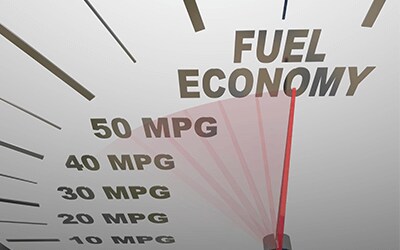
FUEL MILEAGE EXPLAINED
The distance a car could travel on a tank of gasoline is calculated by the mile per gallon it gets. The size of the vehicle, drivetrain (4WD or 2WD), and engine horsepower all play a huge role in calculating the miles per gallon of a vehicle. The numbers like small cars with hybrid capabilities and a low overall weight that just barely tips the scales vs the number for a large truck or SUV will be very different . While fuel mileage can decrease during the life of a car, maintenance and regular drives are the easiest ways to prevent a drop in your fuel economy.

GAS ECONOMY IN HIGHWAY VS CITY
Looking at MPGs, there are 2 statistics that define the gas mileage, the MPGs in the city and highway. Real world conditions are much different compared to the conditions in testing facilities and the numbers show it. Calculating the 2 different fuel economy ratings displays how your driving habits can affect the vehicle's MPGs. How you drive can affect your miles per gallon, so noting both ratings provides a true expectation for your vehicle's fuel economy. Speed is always a factor but also keep in mind all the starting and stopping caused by city driving (stop lights, cross walks etc) contrasted with the constant movement of highway driving, makes it fairly clear that highway driving should get a higher amount of gas mileage for the reasons listed.
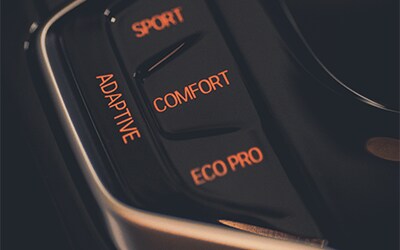
HOW DRIVE MODES AFFECT MPG
Many cars that have been released for the past several years have included a few different drive modes to fit driver's driving style and preserve fuel when it's not needed. A performance driving mode will prioritize a performance-based drive while "Eco" mode will save fuel and cruise control keeps a steady pace which also preserves gas. Between driving modes and cylinder deactivation, new vehicles offer better MPGs than ever before.
ROUTINE UPKEEP
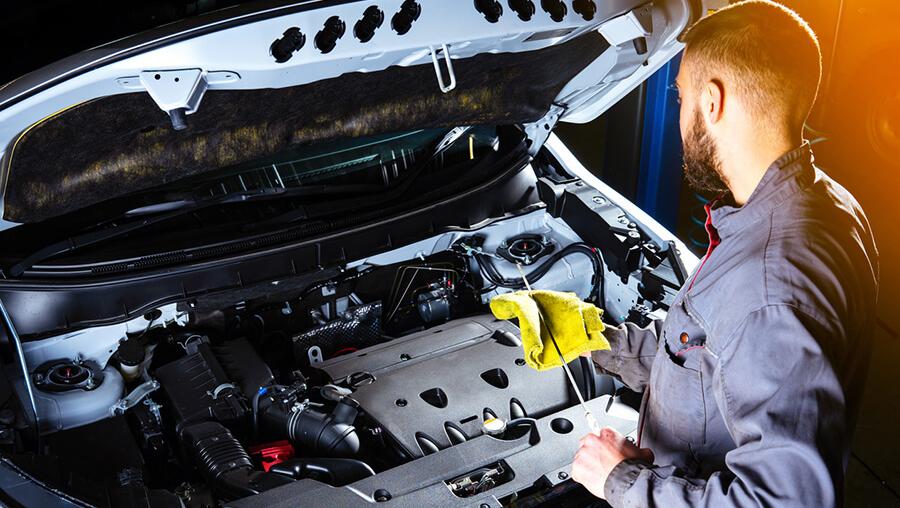
Routine Upkeep
Keeping your car up to date on all services will certainly enhance its efficiency over time. Regular oil changes, Factory scheduled maintenance checks, routine air-filter checks and changes, as well as spark plug replacements aid in maintaining your car and will certainly lengthen its life too.
MAINTAIN YOUR TIRES
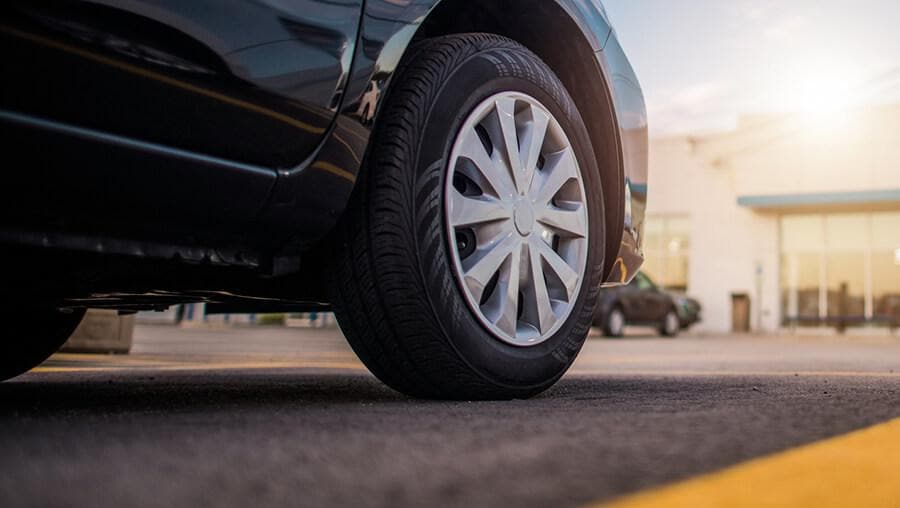
Maintain Your Tires
Bad or damaged tires will certainly boost friction and tax your automobile and result in poor performance which takes its toll on MPG. Examine your tire pressure routinely to keep your tires properly inflated. Even optimal wheel alignment aids in saving fuel by decreasing the amount of drag your automobile engine needs to overcome. Picking low rolling resistance (LRR) tires also helps improving gas mileage.
DON’T OVERLOAD YOUR VEHICLE
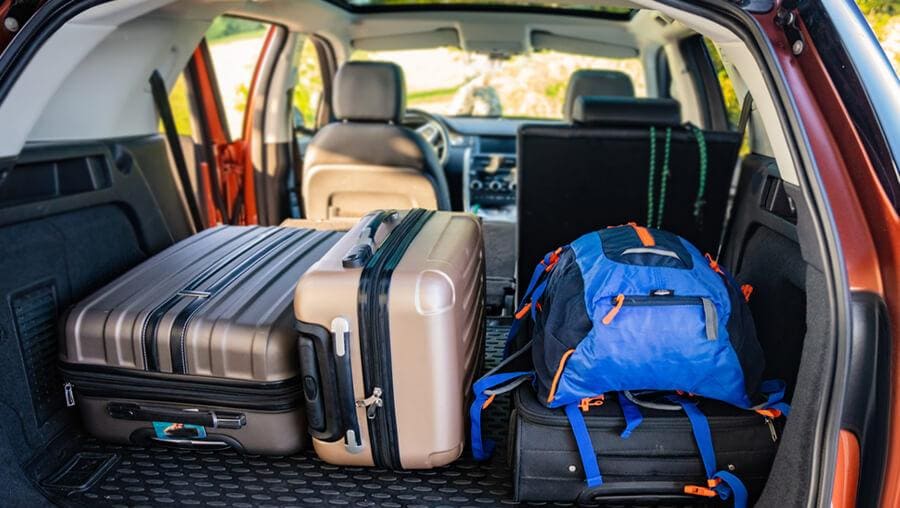
Don’t Overload Your Vehicle
Bad or damaged tires will certainly boost friction and tax your automobile and result in poor performance which takes its toll on MPG. Examine your tire pressure routinely to keep your tires properly inflated. Even optimal wheel alignment aids in saving fuel by decreasing the amount of drag your automobile engine needs to overcome. Picking low rolling resistance (LRR) tires also helps improving gas mileage.
DON’T TOP OFF YOUR TANK
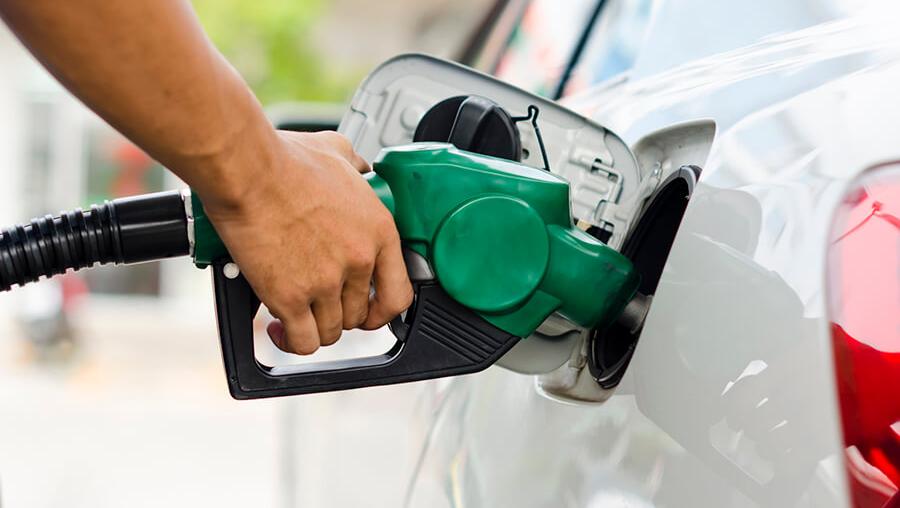
Don’t Top Off Your Tank
You’ve probably heard this before, but let’s just reiterate why you shouldn’t top off the gas tank. It might seem like you’ll get those few extra miles before refilling the tank, but actually, you’re wasting those precious cents. The ‘topped off’ gas mostly evaporates as the fuel heats to power the engine.
AVOID IDLE TIME

Avoid Idle time
Idling uses a surprising amount of fuel — more than restarting the engine. If you need to wait in your parked vehicle for more than a minute or two, switch off the engine and only start up again when you're ready to continue driving. In extreme weather, it's nice getting into a comfortable car but be conscious of how long the vehicle is idling so fuel isn't wasted.
AERODYNAMICS

Aerodynamics
Good aerodynamics affect your car's fuel efficiency by reducing drag, especially at high speeds. Keep windows and moon roof closed on the freeway. Even keeping the car's exterior clean can make a difference. Be mindful too of things on the roof and in the bed of a truck.
-
Sleepy Hollow Chevrolet Buick GMC
1225 N MAIN ST
VIROQUA, WI 54665
- Sales: (608) 561-8768


